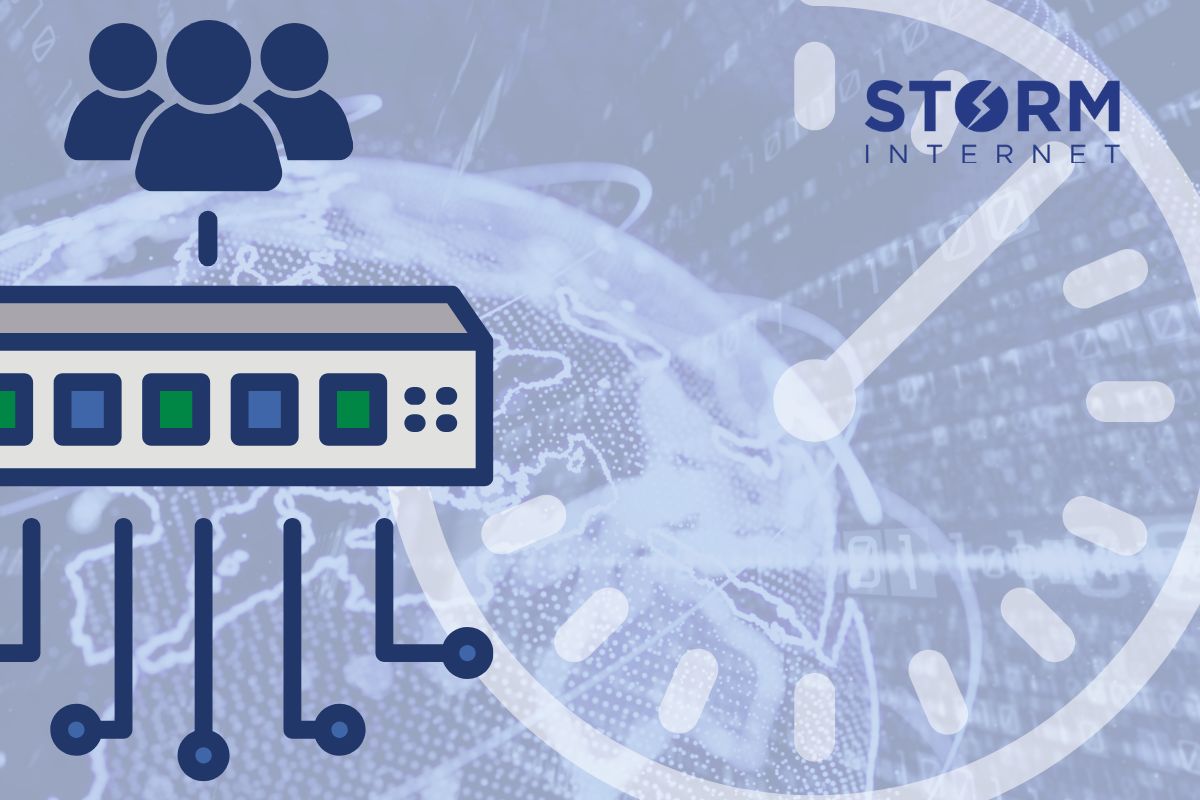Cloud Hosting
Shared hosting could be killing your growth | Storm Internet

You’ve put a lot of effort into your site. The visuals are great, it loads fast and the copy’s good.
But somehow you’re struggling to make an impact. Every now and then your site slows down, and your emails end up in the junk folders of clients and prospects (if they arrive at all).
And it doesn’t matter which plugins you install or how you tweak the code, these problems just keep cropping up.
But what if the problem wasn’t your site? What if it’s the type of hosting you’re on?
Why shared hosting isn’t for growing sites
Shared hosting is an affordable way to get your business online. You don’t have to think about server maintenance or security because it’s all taken care of by the host.
But it comes at a cost, especially if you’ve got a growing audience and your competitive streak is forcing you to outdo your competitors with better features for your visitors.
The problem is in the name… shared hosting.
-
Shared performance
The most obvious drawback of shared hosting is shared resources. Your website shares processing power (CPU), memory (RAM), and bandwidth (MB/s) with other websites on the same physical server. And since there’s only so much of each a host can pack into one physical machine, it means there’s a finite amount to go around. In a real world scenario, this translates into slow page load times (which search engines hate) and inconsistent visitor experiences, because other sites on the server are using the resources your website needs.
-
Shared Security
There’s a limit to the amount of security that can be installed on a shared hosting server. It supports multiple users in multiple locations simultaneously, which requires some security measures to be less restrictive.
-
Shared Email
When an email server’s IP address is blacklisted, it is added to a list of hosts behaving badly. Other email servers validate incoming mail against that list, and often just trash all email coming from that IP address.
With shared hosting there’s a persistent risk that the server’s IP address is blacklisted due to one domain sending out spam email.
Although hosts have put measures in place to protect other domains on a shared server from the actions of one, the risk can’t be eradicated completely.
Can you afford to lose email communication? Few of us can.
-
Shared development environment
Shared hosting includes the software modules standard websites need to run. Think out-of-the-box WordPress or Drupal, or perhaps a small e-commerce website.
But for growing websites that often need custom code or complicated plugins, additional software modules are needed. Few hosts will install additional software components on a shared hosting server, especially when these modules will demand more compute power than other sites on the same server.
From shared server to your own (virtual) server
With all that said, shared hosting is still relevant. It’s ideal for small brochure sites used as electronic business cards, casual blogging, or low-traffic e-commerce sites with a small product range.
But when digital reputation, search engine ranking, performance, and reliability is important, you’re better off in an environment where the entire server and it’s resources are dedicated to your goals.
Thanks to the proliferation of technology, it has become much more affordable to get your own dedicated cloud server, with ‘fully managed’ options available for people with no server administration skills, or who would rather spend their time building their online presence.
-
A dedicated cloud server is scalable
You’ve switched from shared hosting to your own dedicated cloud server. But over time you notice that your server has to work harder to keep up with demand. That’s a good thing. It means you’re getting more eyeballs on your pages, and more users engaged.
With a dedicated cloud server you can assign more resources to help deal with heavy loads, and release them as these spikes level out. (Or just keep them permanently – it’s up to you.)
-
Tailored virtual server security
Back when virtual servers were still relatively new, extensive server administration skills were a requirement. Today, luckily, fully-managed cloud hosting means exactly what you think it means: you don’t have to lift a finger when it comes to server security or maintenance.
Some hosts will even secure your virtual server above Payment Card Industry (PCI) standards to provide you and your visitors with hardened security that complies with essential regulatory frameworks.
Alternatively, if you’ve got some server administration experience (or don’t mind a steep yet gratifying learning curve), you’re always free to take matters into your own hands.
-
Reliable email delivery
With shared hosting you share an IP address with all other domains on the same server. But with a dedicated cloud server you have your own mail server, and your own IP address. And since it’s only your email being handled by the server, the potential for blacklist problems diminish significantly.
-
Dedicated development environment
It’s your server, which means you can install all the software components and modules needed to expand your website or develop your applications. Custom server configurations can be handled by your tech team (or host), and you can create entire virtual networks with a bunch of different virtual servers to mimic an on-premise network setup. No more development bottlenecks or massive capital expenditures on new hardware.
Ready to level up?
So, are you? If performance (and, by extension, Google rankings), security, and reliable email delivery are needed to keep the lights on, then it’s time to level up and get resources dedicated to your goals.
Cloud hosting has come a long way, and is much more affordable than it used to be even five years ago. And you don’t need any tech savvy to make it work – it can be fully managed by your host, which means business as usual from the get-go.
Speak with a Storm Expert
Please leave us your details and we'll be in touch shortly
A Trusted Partner








